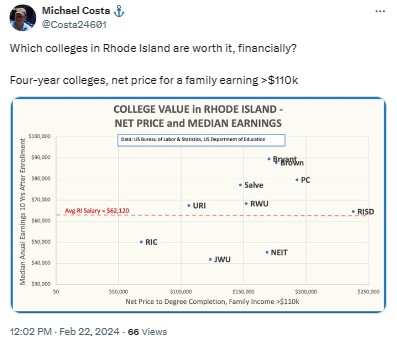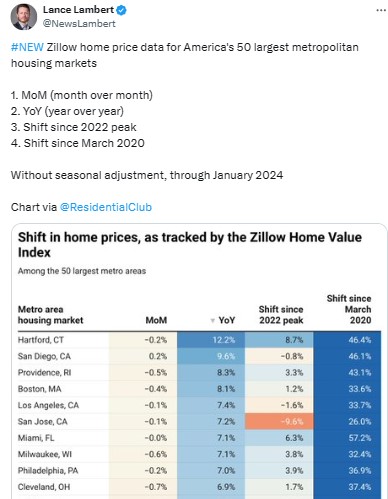Yesterday, I listened to Pearl Jam’s Vitalogy album all the way though for maybe the first time because it’s the 574th best-selling album, and I’m tracing that list from the top. The band’s prior recording, Vs., had been such a disappointment that I didn’t bother with its follow-up.
Vs. came out while I was a freshman at Carnegie Mellon University, so buying it took some doing. I had to decide if the cost was worth the tradeoff on my slim budget, find a music store in an unfamiliar city without the Internet, figure out the bus schedule, and ride back-and-forth across town, observing people along the way.
It feels like we’ve lost something by making everything so easy. Tom Petty once complained that CDs and tapes took something out of the musical experience. Vinyl records came in this large, beautiful envelope, like a poster packaged with the music. CDs and tapes would fit in your pocket.
At least you still had to go to the store and find them. There was an adventure to it, and if you didn’t know what, exactly, you wanted, you had to make an actual decision, because you could only buy so many. And sometimes the experience was all you had, because the album proved a disappointment, like Vs.
Of course, I never could have listened to all the best-selling albums back then. Even knowing what they were would have taken extensive research, and listening to them all would have been a heroic quest.
As in so many areas, what we need is a way to revive the sense of adventure, tangible experience, and risk without imposing a phony scarcity.
[Open full post]This is certainly not where I’d have placed the dots if somebody asked me to guess:
That Rhode Island College is the least expensive, and doesn’t seem to produce a great effect isn’t a surprise. Johnson & Whales, however, is surprising, and New England Institute of Technology is even more so, both in how expensive it is and in the fact that it doesn’t produce even an average income in Rhode Island. I’d have thought skilled trades would achieve that threshold.
[Open full post]On WNRI 1380 AM/95.1 FM, John DePetro and Justin Katz discuss:
- Many lanes of misdirection on the Washington Bridge
- All That distraction from bad governance
- A whodunit of whale deaths
- Curious claims about pale Others
- The unspoken source of schools’ lone increasing subgroup
- A forgotten precedent for McKee’s APRA overcharging
Featured image by Justin Katz using Dall-E 3 and Photoshop AI.
[Open full post]The focus of the related article is explaining why the American Northwest was unique in the country in its increase in emissions from 2022 to 2023, but Rhode Island is a conspicuous red dot on Michael Thomas’s map:
If accurate, this result shows “net zero” proclamations to be so much hot air, but what happened? I’m only speculating, here, but I wonder if the result comes from our deteriorating infrastructure and punishing economic policy. If infrastructure is inadequate, people will do things like run gas generators when the power goes out, and when businesses and households are struggling to make ends meet, they’re not going to invest in newer technologies, which will tend to be more efficient.
[Open full post]Honestly, it looks like Lomborg has identified a typical example of the method of operations for alarmists with this tweet:
As with economic numbers, environmental alarmism creates too much incentive of money and power for the numbers to be trusted.
[Open full post]But Mark Steyn clarifies it with his usual panache:
… one hears so much breezy chit-chat in America about appealing this and appealing that one takes one’s appellate rights for granted.
Not so. In order to appeal, a losing party has to post a bond for the amount at issue. …
This is no small thing, even for those of us at the nickel-and-dime end of the Great American Judicial Shakedown – and especially not when, at the lower-court phase, justice has been comprehensively weaponised against one side of the country’s political divide. But to be clear: to appeal Judge Wankeron’s decision Trump needs to come up with a bond for at least $350 million.
So, just to complicate the issue, Wankeron forbids him from doing business with any financial institution registered in the State of New York. Which is rather a lot of them, it being the home of Wall Street – and of almost all the big players: J P Morgan Chase, Citigroup, Morgan Stanley.
One can be nostalgic, of course, but it seems to me the America in which I grew up would have expressed broad consensus that justice — and trust in the justice system — was so important even the appearance of attempting to curtail due process rights would do harm to the republic. These days, however, even people I once thought were reasonable clearly don’t care. If they can be whipped up to believe somebody they don’t like is a “threat to democracy,” they’re content to undermine democracy’s foundation.
[Open full post]Almost in passing during a recent podcast featuring Greg McKeown, Tim Ferriss stepped into an idea I’ve been contemplating lately:
[A]s my job, I interview some of the top performers in the world, hundreds of them, and the change that I have seen for those people in that subset who are already, I think most people would agree, in the top one percent of one percent in terms of worldly achievement, the dramatic handicap that I’ve seen, the dramatic reduction in productivity that I’ve seen among those people who have succumbed to the siren song of social media specifically is jaw-dropping. It is truly unbelievable, just in the last 12 months, what I’ve observed. It really seems to be going parabolic.
Social media has been around for much longer than 12 months, so what has actually changed? I think it’s the sense of crisis. I used to experience brief periods when I couldn’t get myself off social media because something intense was going on — a war, a terrorist attack, controversial election activities, and so on. I only exaggerate a little if I report that I feel that way on any given Tuesday these days.
Naturally, because it’s social media, the addiction isn’t just to news, but also to sharing in the experience of it with others. In recent years, my sense is that powerful forces are putting tremendous effort into making us feel like life on Planet Earth is constantly in crisis, partly by ricocheting us off each other.
There’s surely some mutually reinforcing causation, here. The tech algorithms’ masters are fine-tuning them to work people up and keep us swiping, and at the same time, various interests are capitalizing on that tool to drive their own causes. Together, these factions are like two grownups spinning a child-laden merry-go-round into a manic frenzy.
On multiple episodes, Ferriss has mentioned that he simply does not get involved in social media because he knows he’s no match for the research and expertise behind the manipulation. That’s certainly one strategy, although whether it is realistic for society broadly, I’m not sure. Perhaps the other driving force would be a better focal point for resistance: How do we remove ourselves from the sense of crisis and back into a mindset of cooperation?
As it happens, a couple other podcast episodes to which I’ve listened in the past week might give some sense of a direction. A subsequent episode in which Ferriss speaks with negotiator William Ury provides this starting point:
… interestingly enough, [researchers] found a correlation between the amount of silence and the outcomes that are mutually collaborative and cooperative, that actually silence actually helps you arrive at agreements that are good for both sides, just because it gives people a chance to pause. So silence in the sense you were talking about, can give a chance for the other side to actually digest it, and maybe it strengthens the persuasiveness of your argument.
Add an EconTalk conversation between host Russ Roberts and Charles Duhigg, with the latter saying:
… what’s particularly important is just these three steps, looping for understanding: You should ask a question–and some questions are more powerful than others, and we can talk about that. Then you should repeat back in your own words what you just heard the person say. And it’s important to do it in your own words. Show them you’re processing. And then, step number three–and this is the step everyone always forgets–is: Ask if you got it right. Because, what you’re doing at that point is you are giving them permission to tell you that you’ve understood or to correct you if you haven’t.
All of the linked episodes have additional suggestions worth internalizing, but we might build up a sort of community resistance to the prod toward panic if we try in our interactions to pause, listen, ask a clarifying question, restate the other’s position, request confirmation, and only then respond. Those steps seem sort of like meditative deep breathing for communication — not enough, certainly, but simple, practical, and incremental.
Featured image by Justin Katz using Dall-E 3 and Photoshop AI.
[Open full post]I haven’t seen anybody outraged by this video. I have seen a lot of people displaying their moral superiority to the people who are supposedly outraged by it, though. For that reason, it seems like a good example of the way in which social media can social engineer movements by creating opportunities for communal opposition (aka, scapegoating):
Personally, I was just relieved Hamas didn’t fly in and slaughter them all at the end.
[Open full post]… is that we, the People, are being manipulated.
Of course, we should be clear. The contribution of illegal immigration is not the entire 3.8M, which also includes whatever increase there would have been, if any. (Presumably, immigration could prove to had made up for what otherwise would have been a decrease.) We also should turn a good portion of our attention to a realistic “So, now what?” analysis.
That said, a country-changing trend like this really should be subject of extensive public debate and consent, which is pretty much the opposite of what our political elites are encouraging.
[Open full post]Lance Lambert, who appears to be a reporter on the housing beat, shared a table of increases in housing prices in the 50 largest metro areas. As the following snip from the table shows, Providence experienced the third-largest increase over the past year:
Various contextual points are important to remember. Metros can vary in size, nature, and density, which will affect increases in growth, and the baseline from which the growth occurred matters. Nonetheless, it will surprise nobody in the Ocean State that housing is expensive and getting more so.
In any event, this is the point at which various political factions begin declaring that the numbers support their priors. Ruling-class partisans claim it’s evidence things can’t be so bad in Rhode Island if people are bidding up the price to live here. Progressives insist it shows how much more help the government must provide. Conservatives, like me, remind everybody of the effects of heavy-handed government.
Obviously, I think my own view is correct, but another principle may be more important to emphasize, these days: The place to start considering the matter is with acceptance. Prices are going up. That’s the value of real estate, and we have to deal with it. Something is causing the change, and it might be good, bad, or mixed, but it’s a fact.
From there, we should recognize that our actions will also have an effect. Here’s where the big-government progressives could really use some time for thought. When the price of something goes up, giving people money to pay for it will increase demand, which will push prices up even more.
Whether the increasing home values are a positive or negative sign, overall, they surely make life more difficult for families who can’t keep up, but we don’t help those families by continuing to put upward pressure on the market. You know who that does help? People who already own property, particularly if the property is on the more-valuable side. Attempting to address this reality with wealth redistribution will compound the unintended consequences and squeeze those who are neither rich nor poor.
Answers aren’t easy, but they have to be realistic. We could simply accept the facts and watch as prices go up for goods and services so workers can afford the living expenses or so it’s worth their while to travel from far away. More actively, we could open up the economy so workers’ salaries can adjust more quickly. We could also ease up on new construction restrictions and zoning rules for existing houses.
There are any number of less-direct and/or more-invasive approaches, too, but we have to start with awareness that direct subsidies won’t help. Unfortunately, Rhode Island’s civic society doesn’t seem interested in having these conversations or educating itself or the population at large.
Featured image by Justin Katz using Dall-E 3 and Photoshop AI.
[Open full post]










